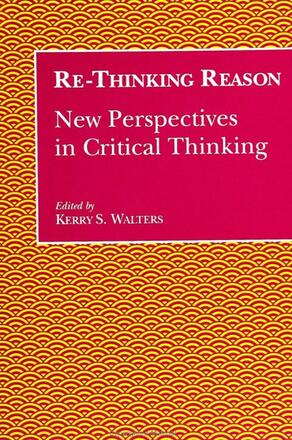
Re-Thinking Reason
New Perspectives in Critical Thinking
Alternative formats available from:
Description
For two decades, colleges and universities have regularly offered, and in some cases required, courses in thinking skills. Such courses generally have focused on training students in the basics of informal and formal logic, the assumption being that good thinking is logical thinking, and that instruction in critical or "good" thinking consequently should emphasize logical procedures. This "logistic" assumption is clearly reflected in both critical thinking textbooks as well as in the professional literature.
Recently, however, the epistemic and pedagogical identification of critical thinking and logical thinking has been questioned by educators from a wide diversity of disciplines. Many of these critics argue that a richer, more comprehensive model of thinking itself is needed, one that acknowledges the importance of traditionally downplayed faculties such as empathy, imagination, and insight. Others contend that thinking skills theory and pedagogy must take into consideration the contextual and sometimes political influences upon not just content but also styles of thinking. finally still other critics of the conventional model of critical thinking argue that recent research in feminist studies sheds a great deal of light upon the directions in which critical thinking instruction should go.
The fourteen essays in this anthology all illustrate this new way of thinking about critical thinking. Each of them is critical of the received model, and each of them argues for one that goes beyond the conventional reduction of thinking skills to logical expertise. But each approaches the issue from a different angle, thereby providing the reader with a diversity of perspectives and accents.
Re-Thinking Reason is an invaluable resource tool, research guide, and supplemental textbook, for educators across the disciplines who are concerned with incorporating thinking skills instruction in their classes.
Kerry S. Walters is Associate Professor in the Department of Philosophy at Gettysburg College.